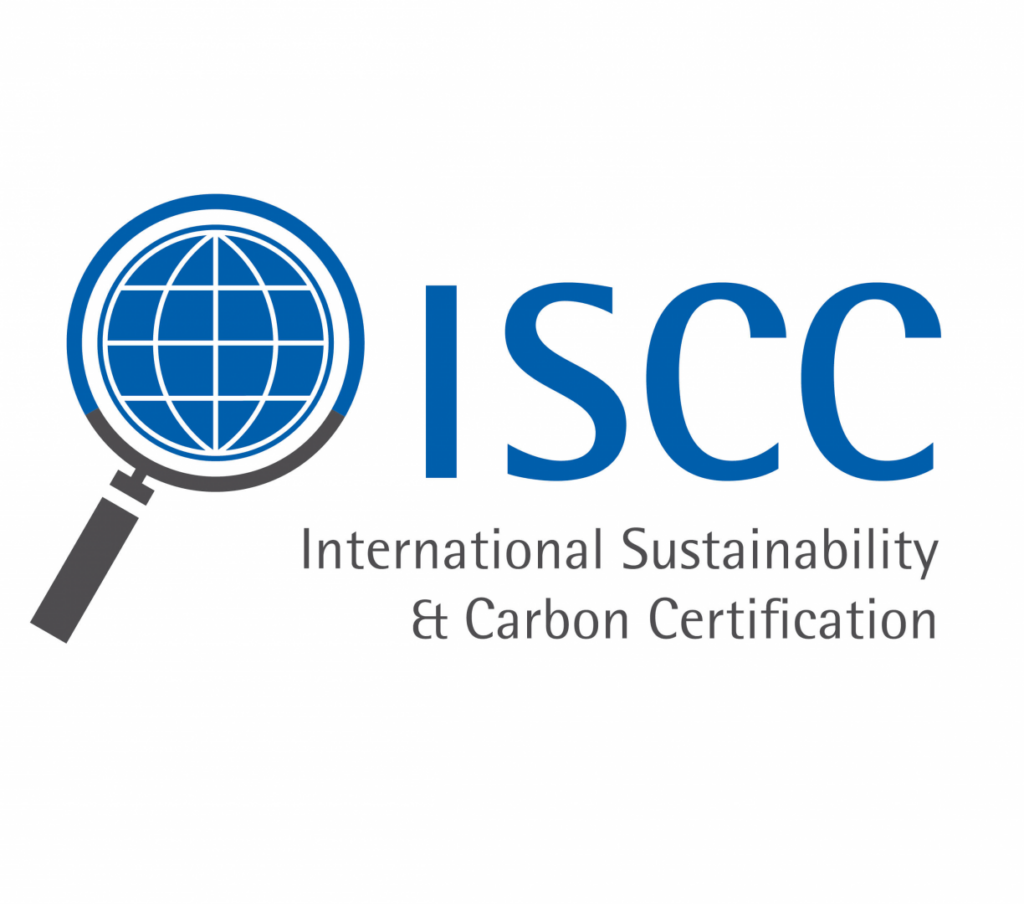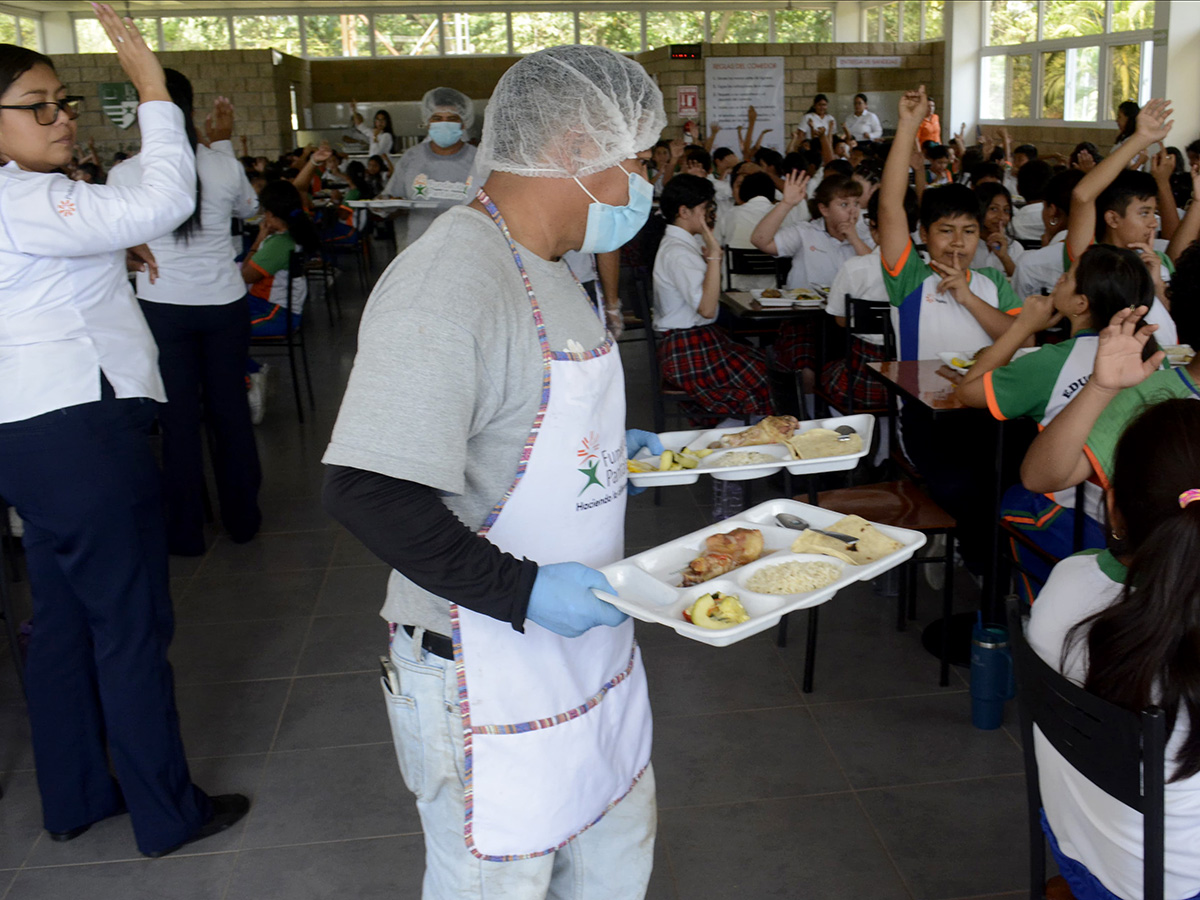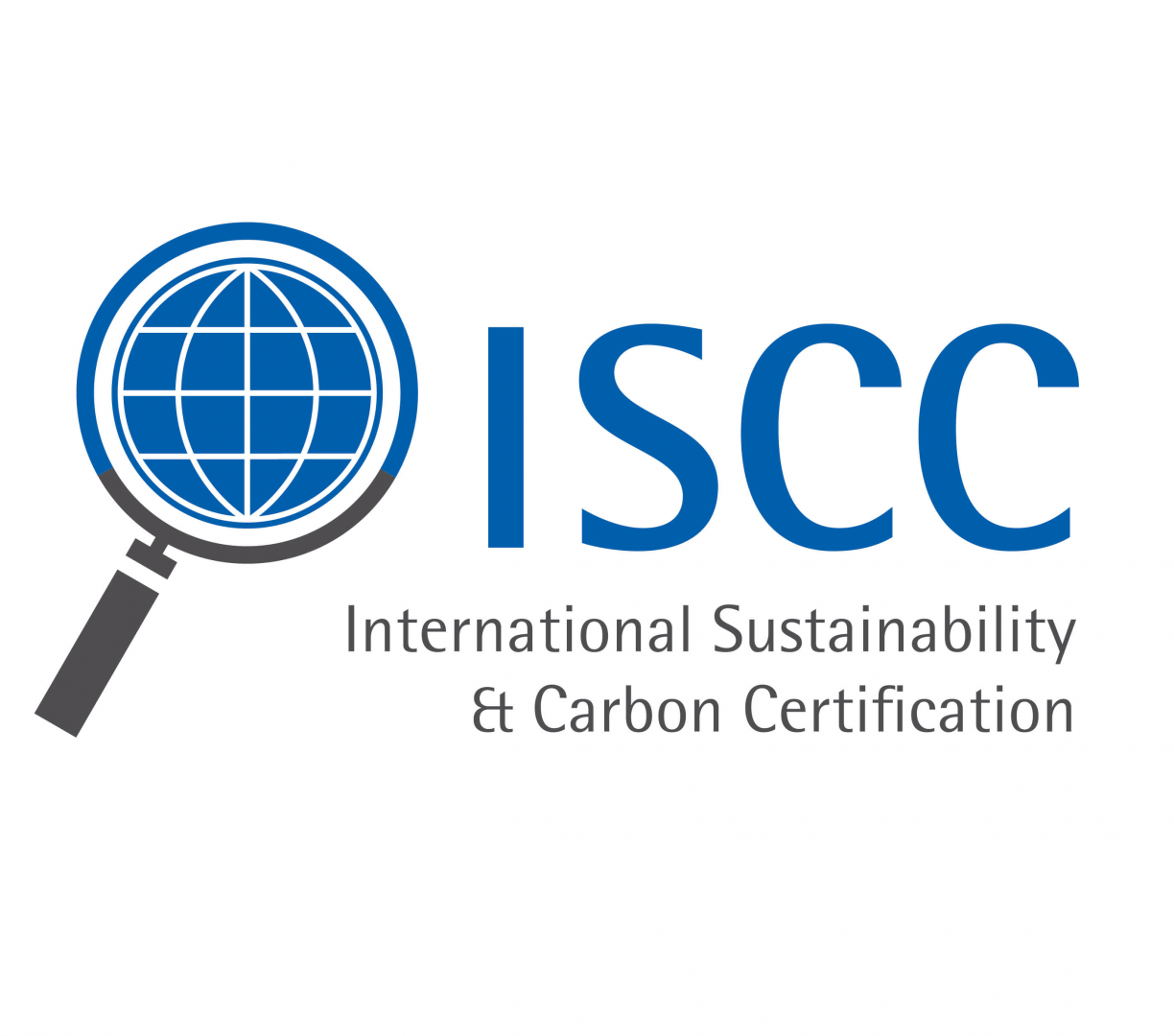Biodiversity at the port: MLP brings bees to Dublin’s dockside
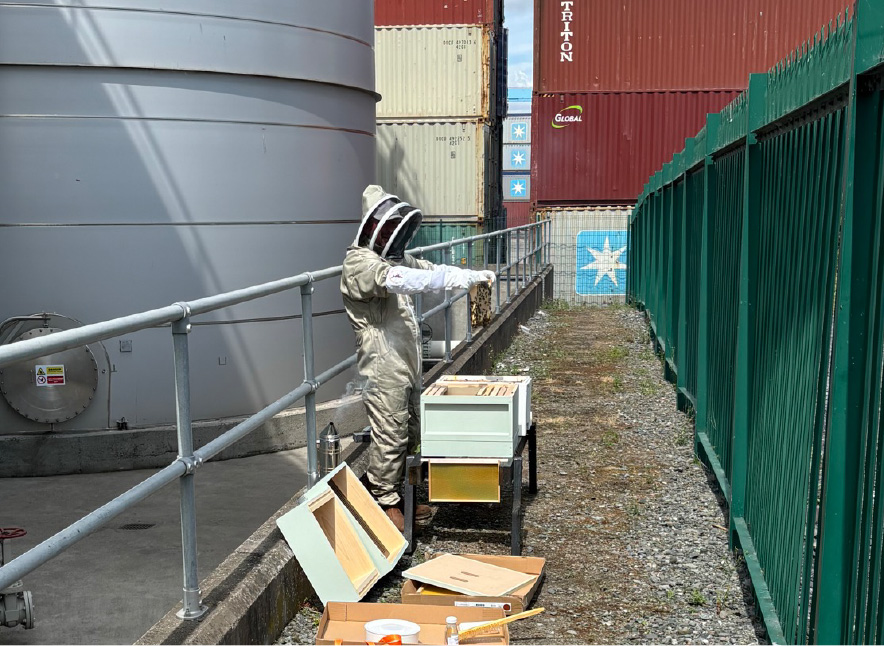
At ED&F Man Liquid Products Ireland Ltd’s Dublin Port tank farm, the team is used to processing and distributing liquid feed products that support farmers. Soon, they may be bringing a different liquid to market: honey from bee hives at their facility, a by-product of their effort to enhance biodiversity by boosting the population of native Irish bees while also supporting a community-focused café.
The initiative began in early 2024, when the MLP Dublin team decided to undertake a biodiversity project at their terminal. When local Company Director and Terminal Manager Simon Walsh sought a volunteer, David Greene was the first to raise his hand. David attended a course from the County Dublin Beekeepers Association, immediately earning him the nickname ‘Bee’ Greene from his colleagues. As a next step, the team purchased a beekeeping suit, a smoker, two bee hives, and other accessories.
With the basic beekeeping knowledge and equipment in place, it was time for the bees. The team knew it was important to choose the native Irish black bee (Apis mellifera mellifera), which has been under threat from hybridisation with non-native honey bees. The Irish black bees are a strain of the Dark European Honey Bee which was once common across mainland Europe north of the Alps, but is now relatively scarce. Irish black bees are well-adapted to the climate, can fly in lower temperatures, and still produce honey even in inclement weather conditions.
MLP Dublin purchased a nuc of bees (20,000 bees including a queen bee) in the spring and transferred it to their on-site hive, where ‘Bee’ Greene could apply his beekeeping skills. A hive can grow to some 50,000 bees during the warmer summer months, and the intention is to populate a second hive around a new queen in spring 2025, hopefully supporting a total of 100,000 bees at the terminal.
Keeping the hives aids the conservation and spread of native Irish black bees across Ireland. MLP Dublin is a member of the Native Irish Honey Bee Society, a group of beekeepers supporting the re-introduction and conservation of native bees across the entire island of Ireland.
For some, the sight of beehives amid the towering tanks and stacks of shipping containers may seem strange, but the team has taken steps to ensure the hives can thrive at the dockside setting. They’ve planted pollinator-friendly plants and hung planters around the grounds to help the bees branch out (including finding their way to a nearby nature reserve). They have begun harvesting rainwater to ensure that the plants stay healthy during the summer months (this also reduces the facility’s draw on municipal water supplies). The team is now exploring ways to convert the grassy area around the facility to more of a meadow, as part of the All-Ireland Pollinator Plan coordinated by the National Biodiversity Data Centre. This includes participating in a no-mow May where native wildflowers are given free rein to grow – the ensuing biodiversity creates a natural abundance of nectar and pollen which sustains larger bee populations that would otherwise face starvation.
And what of that honey? If all goes well with the hives, in 2025 MLP intends to jar some of the honey to donate to the Fair Play Café in Ringsend, Dublin. This volunteer-assisted café undertakes several initiatives to support the local community as well as development projects abroad.
For ‘Bee’ Greene, adding beekeeping to his other responsibilities has been a unique and enjoyable experience: ‘It is rewarding to work for a company that supports these types of sustainability initiatives. For me, it’s a really nice addition to my working life and hopefully we can get through the coming winter and with a bit of luck have a good honey harvest… if the Irish summer cooperates!’
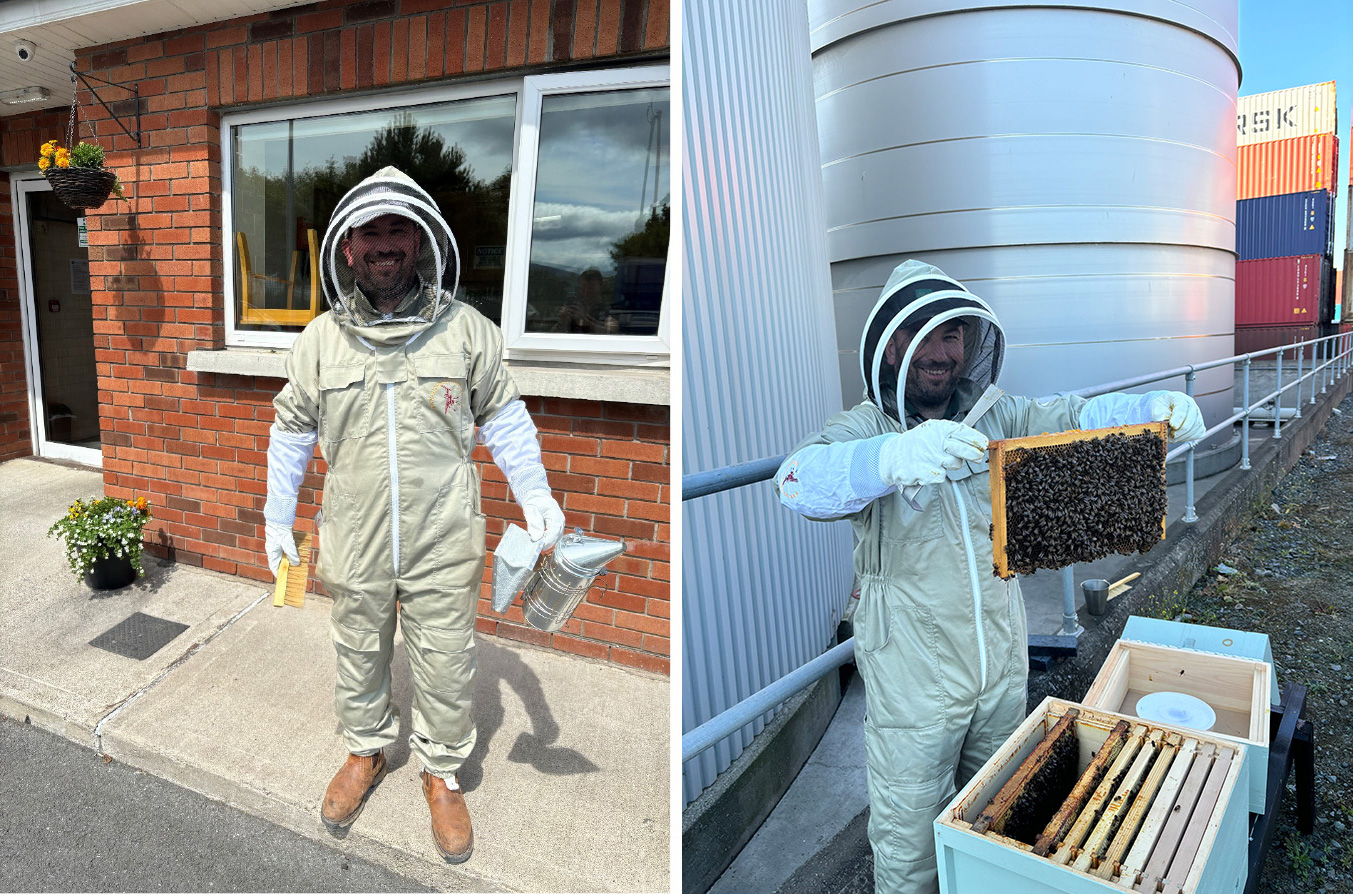
David ‘Bee’ Greene in his beekeeping suit, smoker at the ready. The first hive was established in spring 2024, with 20,000 native Irish black bees.
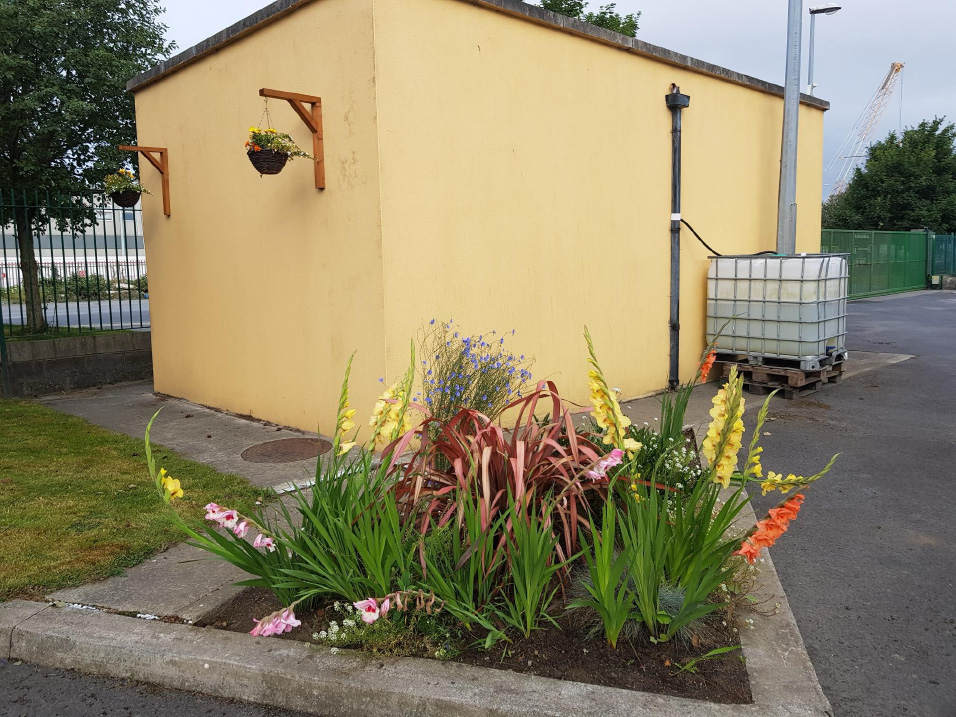
Planters and flowerbeds on the terminal grounds give the bees a chance to pollinate and find their way to a nearby nature reserve.
Share this page
Related News
December 13, 2024


